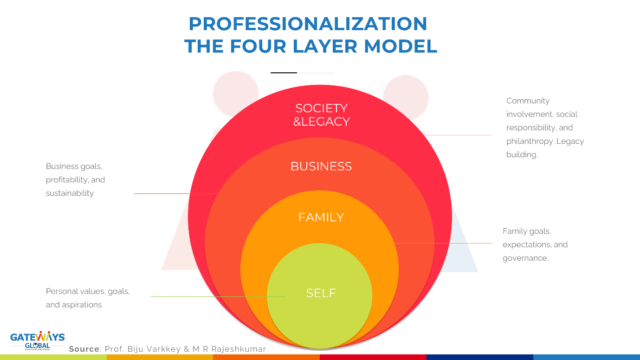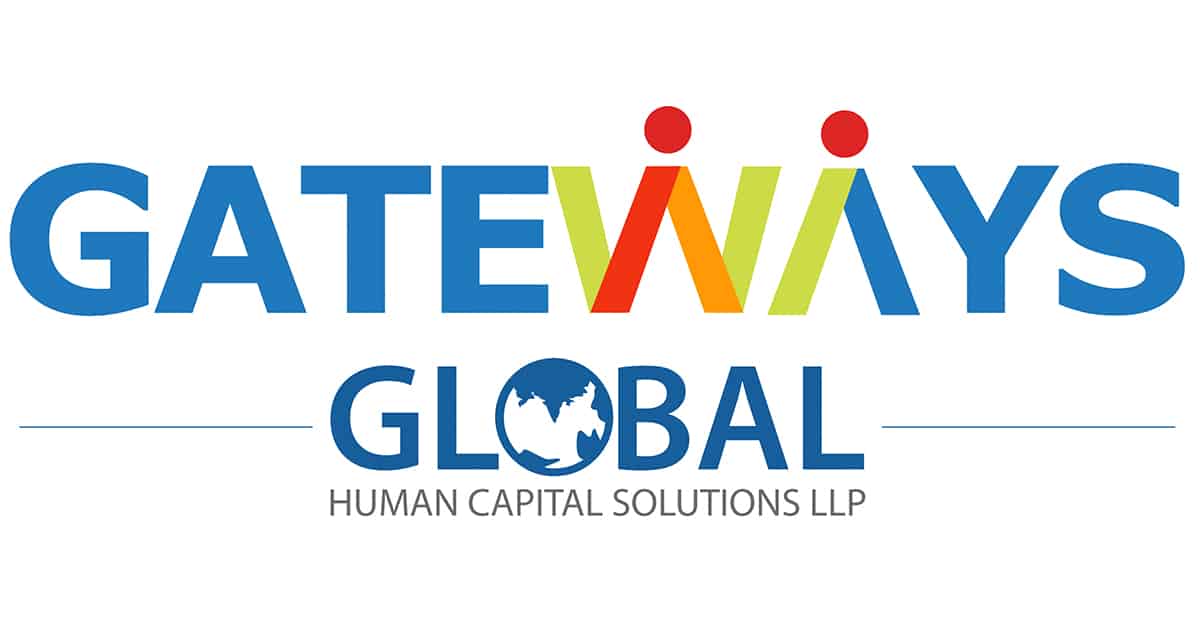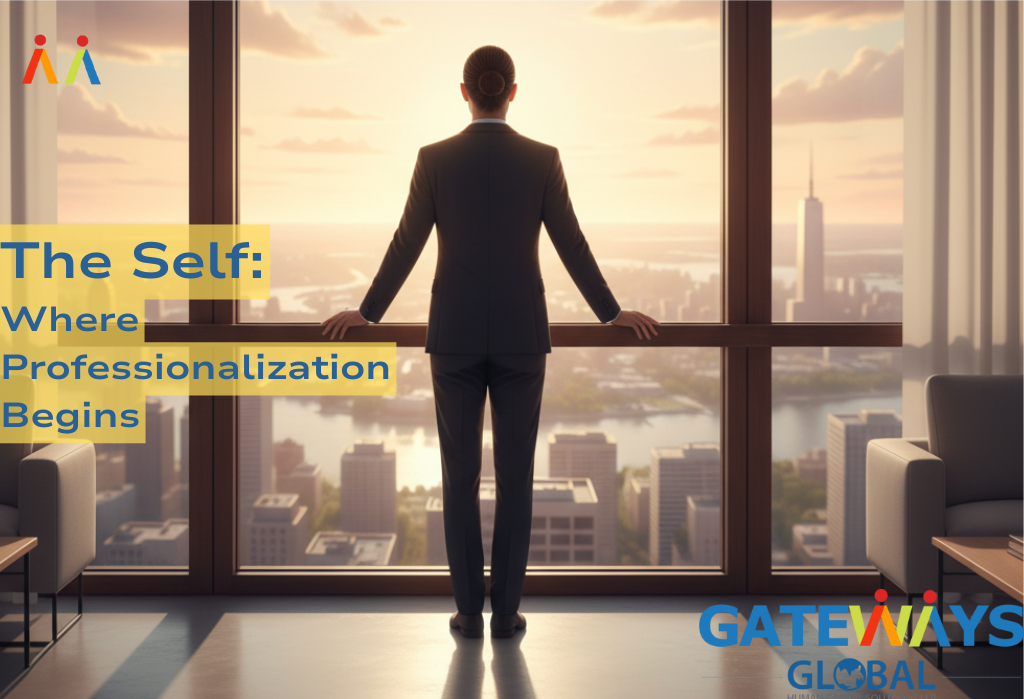A family business in Kerala had been thriving for two generations. Founded by the patriarch and later handed over to his son, it employed several family members and dozens of loyal employees. For years, decisions rested with the head of the family, and the system worked. But as the organisation grew, cracks began to appear. Family disagreements over business decisions escalated, and senior managers from outside the family left within months, frustrated by the nepotism and informal structures within the organisation. What had once been a thriving business was trapped in inefficiency, high attrition, lost clients, and reputational damage. The market was booming, but this company was slowly slipping into decline.
This scenario isn’t unusual. One of the biggest challenges family businesses face globally, and especially in India, is professionalisation. At GatewaysGlobal, we have studied this problem for years. Through our work with family businesses across Asia, we have identified four critical layers where professionalization must take place – Self, Family, Business, and Society. Together, these form the foundation of what we call the Four-Layer Model of Professionalising Family Business.
What is Professionalisation?
From a practical standpoint, professionalization means introducing systems and processes that ensure sustainable results. In the early stages of a business, the patriarch or founding members handle decisions directly. Systems may be informal, yet they function smoothly because control rests with one or two individuals. However, as businesses expand and the number of stakeholders increases, confusion and ambiguity arise.
Professionalization should ideally begin before these confusions set in. It’s far more effective and beneficial to start when operations are running smoothly than to wait until conflicts and inefficiencies emerge.
Where Does Professionalisation Begin?
This is often a “chicken or egg” question for families – should professionalisation begin with the business or with the family? Most families attempt to professionalize their business first. They hire senior professionals from MNCs or adopt new structures. However, these efforts often fail due to unclear authority, culture clashes, or conflicts with family management. Others try to professionalise their image through CSR or philanthropic activities to project an impression of professionalism. While well-intentioned, these efforts are rarely sustainable if not backed by deeper structural changes.
Through our research and experience, we have identified that the most impactful and sustainable starting point is not the business but with the SELF. When the leaders themselves professionalise, the rest of the organisation will naturally align and follow.
Professionalising the Self
The “self” refers to the individuals who lead the business – the patriarch, matriarch, or next generation leaders. Professionalising the self requires shifting from the mindset of founder-owner to founder-CEO.
This transformation rests on three aspects:
1. Behaviour – Shifting from owner-centric to business-centric actions. For example, valuing time as a CEO does by structuring schedules, giving appointments, and respecting others’ time, etc.
2. Systems and Processes – adhering to consistent systems, rather than decisions based on personal whims.
3. Relationships – nurturing relationships with employees, vendors, and partners as long-term collaborators rather than personal dependents.
Such a shift does not happen automatically. It requires conscious effort, exposure, and personal willingness to change. Habits built over decades, such as walking into the office late or setting informal work norms, take time to unlearn. But when leaders demonstrate discipline and professionalism, it sends a strong message to their team and lays the foundation for a more professional culture in their organisation.
Executive Coaching
A key enabler in the journey of Professionalising the Self is Executive Coaching. Leaders often say they are “lonely at the top” because they are hesitant to share doubts or struggles with family or employees due to fear of judgment. An Executive Coach acts as a thought partner, providing a confidential, non-judgmental space where leaders can reflect and arrive at their own solutions.
In family businesses, where multiple members may hold senior roles, coaching can also help navigate complex dynamics. It is increasingly common for both current and next-generation leaders to seek coaching, not just as a sounding board, but also to build leadership authenticity, refine their image, and strengthen executive presence.
Mentoring
Unlike Coaching, which is more facilitative, mentoring draws on lived experiences. A mentor who has successfully navigated professionalization in a family business can guide a leader through challenges and provide practical wisdom.
Psychometric Assessments
Self-awareness is a necessity for the Professionalisation of Self. Tools like CTPI-R from Central Test, which we use at GatewaysGlobal, help leaders identify their behavioral tendencies. For example, if a leader realizes they make decisions based on emotion, they can consciously develop a more rational, balanced approach. Such assessments strengthen competencies and provide a path for self-improvement.
Exposure and Learning
Another dimension of Professionalising the Self is exposure to global best practices. Many next-generation leaders participate in family business programs at leading institutions, which give them valuable networking opportunities and insights into how other businesses have successfully professionalized.
Conclusion
Professionalising the Self is the most challenging but also the most rewarding step in a family business’s journey of professional transformation. It is not about force- fitting behaviours. It is about evolving naturally and authentically. It requires consistency and the courage to question long-standing habits. When leaders begin to shift owner-driven decisions to business-driven decisions, the effect is profound. At GatewaysGlobal, we have seen how this shift in leaders is greatly supported with a thought partner by their side. This is why Executive Coaching has become such a valuable part of our work with family businesses.
To conclude, professionalization is not a one-time exercise. It is a 360-degree transformation involving mindset shifts, behavioural changes, skill development, and support systems. In the next edition of this magazine, we will take this series forward by exploring the second layer of our model: Professionalising the Family.



